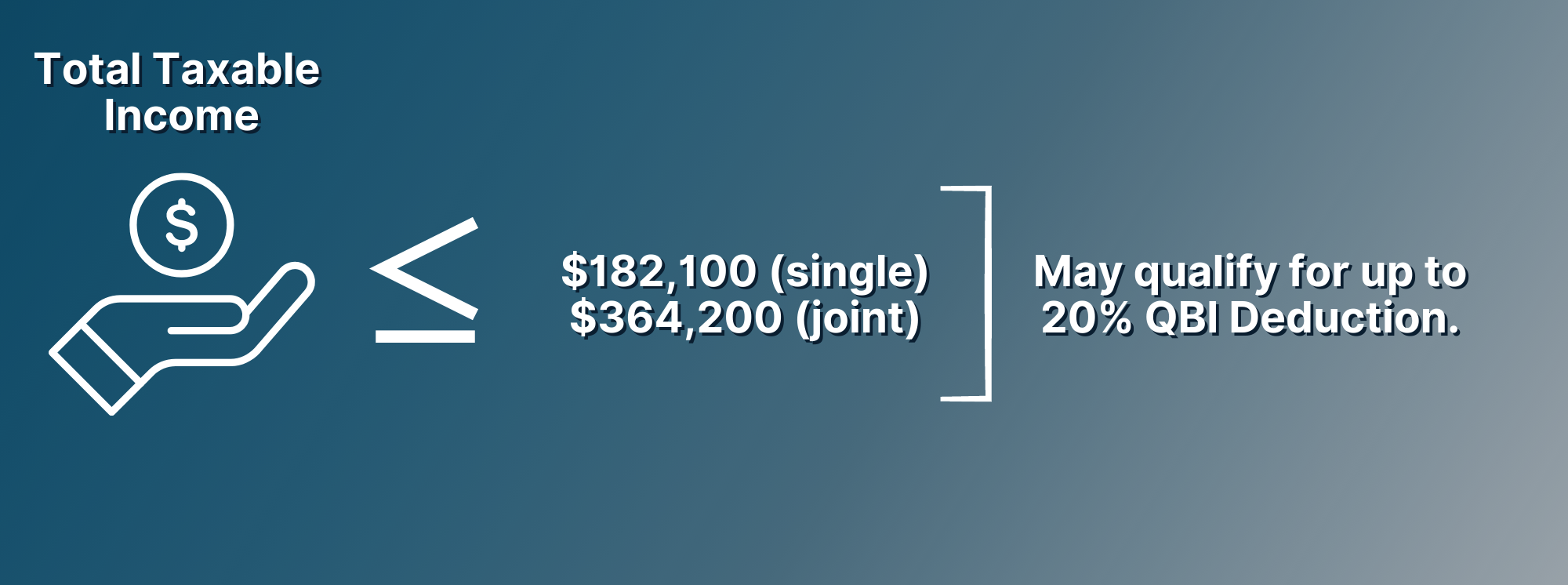As a business owner who is focused on your bottom line, you are likely always looking for additional deductions to your taxable income. The Internal Revenue Code provides for a simple reduction of income for a qualified business. The Qualified Business Income (QBI) deduction, also known as Section 199A, allows owners of pass-through entities to claim a tax deduction worth up to 20% of their QBI. A pass-through entity can be a sole proprietorship, partnership, LLC, or S corporation. For a definition of “pass-through,” see our previous article. QBI is, broadly speaking, a business’s net profit, with a few exceptions.
The QBI deduction has two components. First, the QBI component of the deduction equals twenty percent of QBI from a qualified business. Depending on the owner’s taxable income, the QBI component is subject to certain limitations. The QBI deduction has a threshold determination for 2023. If an owner’s total taxable income — that is, not just business income but other income as well — is at or below $182,100 for single filers or $364,200 for joint filers, the owner may qualify for the 20% deduction on their taxable business income.

Second, owners with qualified dividends from a real estate investment trust (REIT) or income from a publicly traded partnership (PTP) can also claim a 20% QBI deduction. The REIT/PTP component of the deduction equals twenty percent of qualified REIT dividends and qualified PTP income. Depending on the owner’s taxable income, the amount of PTP income that qualifies may be limited if the PTP is engaged in a specified service trade or business.
Finally, the QBI deduction is the last deduction before determining a taxpayer’s taxable income which makes it a below-the-line deduction. Thus, the QBI deduction can be paired with either the standard deduction or itemized deductions.
This article is just an overview of the general qualifications for the QBI deduction. As always, we encourage you to reach out to your financial and legal advisors to determine whether you qualify for this additional deduction.

Miranda is an Associate at R. Reese & Associates and part of the Corporate and Transactions teams. To learn more about Miranda, visit her attorney page.
Disclaimer: The information and material on this website is general information about our practice and firm. This information does not offer specific legal advice and the use of this information does not create an attorney-client relationship with RR&A or any of its attorneys. The information on this website should not be used for legal advice, and persons should not act upon the information on this website without engaging professional legal counsel.
